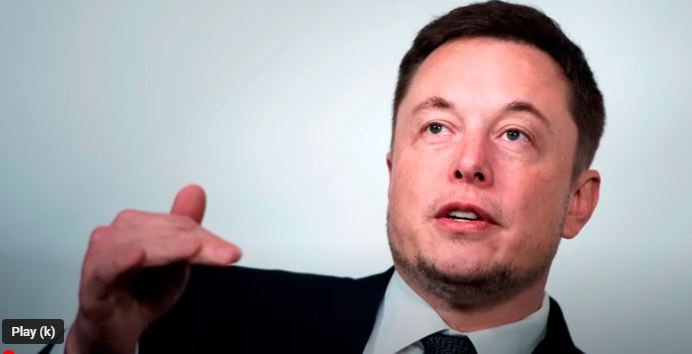It’s a strange thing, really, to wake up each morning and know that one man’s fortune rises and falls by more than the GDP of small nations. That man, of course, is Elon Musk. And if you’ve read a headline in the past decade, odds are, it had his name in it, hovering somewhere between awe and controversy, between genius and provocation.
Today, Elon Musk is the richest person alive. Depending on where you check, he’s worth $424.7 billion (Forbes) or $404.2 billion (Bloomberg). Either way, he’s the only human being on Earth to hover this long in the $400 billion stratosphere, riding high on rocket fuel, electric cars, and a particular brand of chaos only he seems to master.
But this story, his story, isn’t really about numbers.
Biography and Early Life of Elon Musk
| Detail | Info |
|---|---|
| Real Name | Elon Reeve Musk |
| Born | June 28, 1971 (Pretoria, South Africa) |
| Age (2025) | 54 |
| Ethnicity/Nationality | South African, Canadian, American |
| Education Background | University of Pennsylvania (Physics & Economics) |
| Parents and Siblings | Maye Musk (mother), Errol Musk (father); two siblings |
| Rise to Fame | Sold PayPal to eBay in 2002, launched Tesla and SpaceX |
| Religion and Beliefs | Atheist, vocal about science, progress, and existential risk |
Career Journey: From Zip2 to SpaceX and Neuralink

There’s no roadmap for becoming the richest person in the world. It’s a patchwork of risk, timing, obsession, and a healthy dose of defiance. Musk stitched his own map decades ago, when he left South Africa for North America, carrying a knapsack of books, ideas, and a chip on his shoulder the size of a solar panel.
He made his first big fortune with PayPal, which sold to eBay in 2002. But it was just the beginning. Where others might’ve cashed out and eased into early retirement, Musk doubled down. He didn’t want to just build wealth. He wanted to bend the arc of human progress.
He launched Tesla, in a world where electric cars were seen as niche or nerdy. He founded SpaceX, at a time when private spaceflight sounded like science fiction. He bet big and risked bankruptcy more than once.
Today, Tesla alone makes up more than half of his net worth. Its stock is famously volatile, surging on battery breakthroughs and dipping on political tweets. But it remains the crown jewel of Musk’s portfolio, a company that’s not just selling cars but redefining transportation, automation, and AI.
Elon Musk’s Net Worth: The Billionaire Beyond Billionaires
According to Forbes, Musk’s net worth stands at $424.7 billion as of July 2025. That puts him well ahead of Mark Zuckerberg ($247.6B), Jeff Bezos ($238.2B), and Bernard Arnault ($150.4B). His fortune is largely tied to stock in Tesla and private equity in SpaceX, along with stakes in ventures like X (formerly Twitter), Neuralink, and The Boring Company.
Musk’s net worth is unique not just in size but in velocity. It’s not built on passive income or inheritance, but on stakes in volatile, visionary ventures. On some days, he gains or loses more than $15 billion in mere hours.
Lifestyle and Homes: Elon Musk’s Minimalist Reality
Unlike other billionaires who invest in art, yachts, and sprawling villas, Musk is almost comically spartan. He sold off all his real estate holdings and now resides in a $50,000 prefab Boxabl unit near SpaceX’s Starbase in Texas.
His daily routine is simple. Meetings, engineering reviews, factory visits, and late-night product sessions. He rarely vacations. He eats on the go. He wears the same black shirts and jeans nearly every day. Luxury, to Musk, is watching a rocket land on a dime.
There are rumors, of course, about cosmetic surgery, especially hair restoration, but Musk has never confirmed any. He lets the world speculate. His focus remains squarely on building the future.
Relationships, Children, and Divorce: Musk’s Personal Life
Musk’s personal life reads like a sci-fi soap opera. He’s been divorced three times, twice from the same woman, British actress Talulah Riley. He shares children with musician Grimes, including internet-famous X Æ A-12, and twins with Neuralink executive Shivon Zilis.
He now has 11 children, each carrying names as distinctive as their father’s vision. Though Musk insists he loves being a father, his parenting is often remote, managed between rocket launches and boardroom briefings.
His breakup with Grimes played out online and in tabloids, feeding a relentless cycle of gossip. Still, Musk seems unfazed. He treats attention like oxygen, necessary for survival but never the point.
Gossip and Scandals: Public Feuds and Private Agendas
Controversy clings to Musk like a solar flare. From public spats with Bill Gates and Joe Biden, to wild tweets about Dogecoin, to his erratic leadership of X, Musk thrives on volatility.
His most controversial move? Buying Twitter, renaming it “X”, and turning it into a platform that echoes his personal ideologies, particularly free speech, decentralization, and tech-accelerated democracy. The backlash was swift, global, and ongoing.
He’s also had repeated run-ins with the SEC, sparked market confusion with tweets like “funding secured,” and openly mocked competitors like Rivian and Lucid. But the scandals rarely stick. If anything, they seem to inflate his myth.
Elon Musk and AI: Neuralink, Optimus, and the Trillion-Dollar Horizon
Perhaps his most forward-looking bets lie in AI. With Neuralink, Musk is developing a brain-computer interface designed to help the disabled, and eventually, enable a symbiosis between humans and machines.
His Tesla Optimus robot, launched in prototype form in 2024, is already performing basic factory tasks. If scaled, Optimus could reinvent the global labor market and ignite an industry worth trillions.
Analysts now openly speculate. Could Elon Musk be the first trillionaire? If AI and robotics unfold as forecasted, the answer is no longer “if,” but “when.”
Real Name, Age, and Identity: The Man Behind the Machine
Elon Reeve Musk, born in Pretoria in 1971, turns 54 in 2025. Despite decades in the public eye, his core identity remains oddly guarded. He talks more about Mars colonization than family holidays. More about civilizational risk than friends or hobbies.
What sets him apart isn’t just his work ethic, but his wiring. He doesn’t see problems, he sees systems. He doesn’t optimize for profit, he optimizes for impact.
“When something is important enough, you do it even if the odds are not in your favor,” he once said.
And that may be his defining belief, the faith that impossible things are simply possible things waiting for the right mind.
Final Thoughts: What Elon Musk Really Represents
So yes, Elon Musk is the wealthiest man alive. But he’s also a symbol. Of ambition. Of friction. Of the future tugging at the present.
His net worth is impressive, but it’s not the point. It’s a byproduct of his deeper value, the ability to dream audaciously, act ferociously, and make the world pay attention.
Whether admired or criticized, Musk isn’t fading from view. He’s not drifting toward legacy or comfort. He’s pressing harder, moving faster, and betting everything.
And if you ask him, he’ll tell you. He’s only just getting started.
Sources: Forbes Billionaires, Bloomberg Billionaires Index, BBC News, Business Insider, Financial Express
